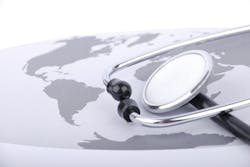Multilateral development banks and WHO launch new investment platform to strengthen primary healthcare services
In a development aimed at investing in and strengthening essential, climate and crisis-resilient primary healthcare (PHC) services in low- and low-and-middle income countries (LICs and LMICs), three multilateral development banks have joined with the World Health Organization (WHO) to launch the new Health Impact Investment Platform.
The Platform, launched during the Summit for a New Global Financing Pact being held in Paris, will make an initial €1.5 billion available to LICs and LMICs in concessional loans and grants to expand the reach and scope of their PHC services, especially for the most vulnerable and underserved populations and communities.
The African Development Bank (AfDB), European Investment Bank (EIB), Islamic Development Bank (IsDB) and WHO are the Platform’s founding members. As this is a global challenge, the Inter-American Development Bank (IDB) is also considering joining this partnership in view to extending this initiative to the Latin America and the Caribbean region.
WHO will act as the Platform’s policy coordinator, responsible for ensuring alignment of financing decisions with national health priorities and strategies. The Platform’s secretariat will support governments to develop national health and prioritize PHC investment plans. The Platform will also aim to catalyze wider PHC investments in support of government health strategies.
Dr Tedros Adhanom Ghebreyesus, WHO Director-General, said a PHC approach offers the most effective means to improve health and well-being, including through the delivery of essential health services to all people. It is a driver of universal health coverage, one of the United Nations Sustainable Development Goals (SDGs). World leaders committed in 2015 to achieve access to essential health-care services and affordable essential medicines and vaccines for all people by 2030.
The new Platform builds on experience gained through cooperation between countries, multilateral organizations and development banks proved fruitful during the pandemic. For example, WHO, the EIB and the European Commission worked closely with Angola, Ethiopia and Rwanda to strengthen their health systems. Initially launched as stand-alone programs or as part of the countries’ response to COVID-19, these interventions mobilized technical assistance, grants and investments with advantageous terms to build up primary healthcare.





